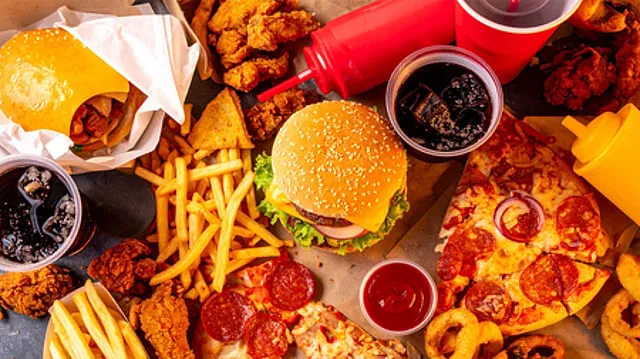Global Health Experts Warn of Dangers Posed by Ultra-Processed Foods

Health experts have issued a stark warning regarding the increasing prevalence of ultra-processed foods (UPFs) in diets worldwide, citing a growing body of research that links these products to a range of chronic health issues. A comprehensive review published in The Lancet has concluded that the shift from fresh, whole foods to cheaper, highly-processed options is contributing to significant health risks, including obesity, diabetes, and even mental health disorders.
The report, authored by 43 international specialists and based on 104 longitudinal studies, emphasises the need for immediate governmental intervention to mitigate the health impact of UPFs. These foods are defined as items containing more than five ingredients not typically found in a home kitchen, such as additives, preservatives, and artificial colourings.
Common examples of ultra-processed foods include instant noodles, sugary snacks, soft drinks, and packaged baked goods. Surveys have indicated a concerning trend, with the consumption of these products steadily rising across various populations, which is contributing to poor dietary quality characterised by excess sugars and unhealthy fats, alongside insufficient fibre and protein.
Professor Carlos Monteiro from the University of Sao Paulo, who developed the Nova classification system for food categorisation, noted, "The increasing intake of ultra-processed foods is altering diets across the globe, pushing aside fresh and minimally processed food options. This dietary shift is driven by large corporations that profit from promoting UPFs, often employing intense marketing strategies to undermine public health initiatives aimed at encouraging healthier eating habits."
Co-author Dr Phillip Baker from the University of Sydney suggested a robust public health response similar to efforts against the tobacco industry is essential to combat this issue. He stated, "We need a coordinated global approach to address the health risks posed by UPF consumption."
Despite the compelling data, some scientists have highlighted the need for further clinical trials to establish a direct causal link between UPF consumption and health problems. Critics argue that while the review identifies correlations, it does not definitively prove that UPFs are the sole cause of various health issues.
Professor Kevin McConway, an expert in applied statistics, commented, "While it is probable that some ultra-processed foods could elevate the risk of certain chronic diseases, it cannot be concluded that all UPFs are harmful. Further research is necessary to clarify these relationships."
The report acknowledges the complexity of isolating the effects of UPFs from other lifestyle factors, including socio-economic status and general health behaviours. Concerns have also been raised regarding the validity of the Nova classification system, which some believe places too much emphasis on the level of processing rather than nutritional value. For instance, certain products like wholegrain bread or low-fat yoghurt are classified as ultra-processed despite their nutritional benefits.
In the UK, the Scientific Advisory Committee on Nutrition has expressed alarm about the association between high UPF consumption and negative health outcomes. Current dietary guidelines recommend increased intake of fruits, vegetables, and fibre, while advising reductions in sugar, fat, and salt.
The Food and Drink Federation has defended the role of UPFs in a balanced diet, highlighting efforts by companies to reduce sugar and salt levels in their products over recent years. Kate Halliwell, Chief Scientific Officer at the Federation, stated, "The food industry has made significant strides in improving the health profile of products in line with government guidelines."
However, the Lancet report insists that the rising consumption of UPFs is a pressing global health challenge that demands a unified response. It calls for measures such as clearer labelling, higher taxes on UPFs, and restrictions on marketing aimed at children to protect public health and promote healthier dietary options. The experts argue that prioritising the regulation of UPFs is essential for reversing the current trends in diet-related chronic diseases.

Trump Claims Role in Halting Conflict Between India and Pakistan

Anmol Bishnoi Detained for 11 Days by NIA Following Deportation

Sensex rises 513 points as IT stocks lift Indian markets

Infosys Launches ₹18,000 Crore Share Buyback Programme in India





